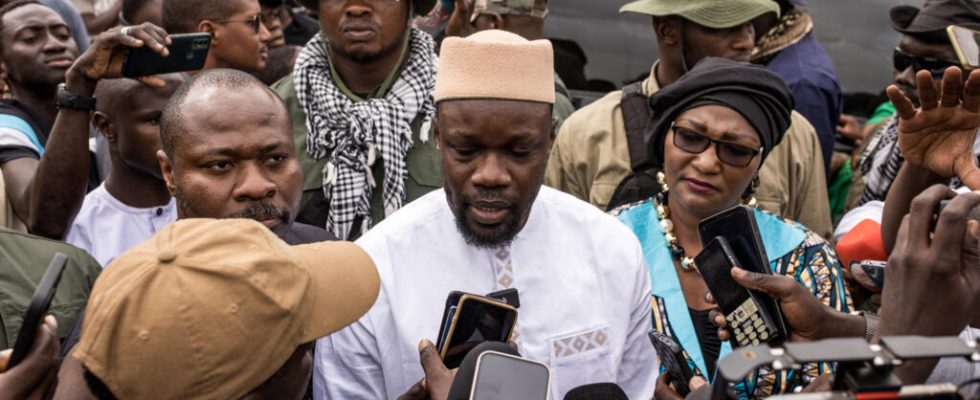In the Council of Ministers, Wednesday April 10, President Bassirou Diomaye Faye asked his Prime Minister Ousmane Sonko to audit the functioning of ministries and to assess the general situation of public finances. The first measures announced have been welcomed by civil society organizations that monitor issues of good governance.
2 mins
With our correspondent in Dakar, Juliette Dubois
The reduction in the lifestyle of the State of Senegal has been requested for a long time by civil society. This will first be done through an audit of human and budgetary resources in the various ministries. A necessary effort for Moundiaye Cissé, from the NGO 3D: “ I think that in the state budget, half is spent on personnel expenses. We’re used to seeing fictitious staff everywhere. We must rationalize this staff and ensure that they are effective staff. There are also a lot of state agencies, they announced that they are going to consolidate them. »
Read alsoIn the news: the first Council of Ministers of Bassirou Diomaye Faye and Ousmane Sonko
This rationalization will also have to go through a more in-depth audit of all public finances which has been included in the Senegalese transparency code since 2012. The president has the first three months of his mandate to do so. For Elimane Kane of the Legs Africa think tank, this is a vital project for the country: “ We have a fairly large outstanding debt, so we must mobilize domestic resources. I think that it is at the level of the tax base that this can be done immediately. We must also maximize revenue mobilization because there is a lot of shortfall on the tax front: a lot of avoidance, tax evasion. »
To reduce spending, the Pastef program also provides for the abolition of certain institutions, such as the Economic and Social Council, and the High Council of Local Authorities.
Read alsoSenegal: a first council of ministers to “give the main directions”
